Humans
Sign up for our newsletter
We summarize the week's scientific breakthroughs every Thursday.
-
 Science & Society
Science & SocietyLost wallets are more likely to be returned if they hold cash
Worldwide, return rates of lost wallets goes up as the money inside increases, contradicting the idea that people act in their own self-interest.
By Sujata Gupta -
 Health & Medicine
Health & MedicineRotavirus vaccines may lower kids’ chances of getting type 1 diabetes
Vaccination against rotavirus is associated with a reduced incidence of type 1 diabetes in children, according to an analysis of U.S. insurance data.
-
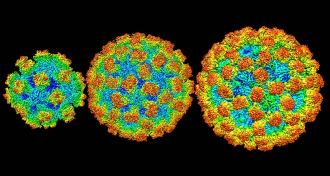 Life
LifeNorovirus close-ups might help fight stomach flu
Detailed views of a common stomach virus that causes vomiting and diarrhea could aid vaccine and disinfectant development.
-
 Science & Society
Science & SocietyScience hasn’t managed to span the diagnosis gap
Editor in Chief Nancy Shute discusses how scientists are devising better diagnostic tools to detect diseases.
By Nancy Shute -
 Health & Medicine
Health & MedicineWhen fighting lice, focus on kids’ heads, not hats or toys
Learning a little about lice makes for a more efficient battle against the bugs.
-
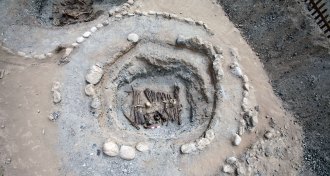 Archaeology
ArchaeologyPeople may have smoked marijuana in rituals 2,500 years ago in western China
Cannabis may have been altering minds at an ancient high-altitude cemetery, researchers say
By Bruce Bower -
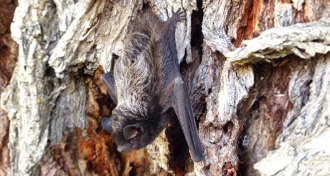 Animals
AnimalsBats are the main cause of rare rabies deaths in the U.S.
In the United States, bats are mostly to blame for rabies deaths, while rabies transmitted by overseas dogs comes in second.
-
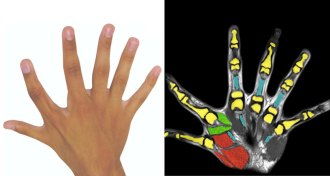 Health & Medicine
Health & MedicineExtra fingers, often seen as useless, can offer major dexterity advantages
Two people born with six fingers on each hand can control the extra digit, using it to do tasks better than five-fingered hands, a study finds.
-
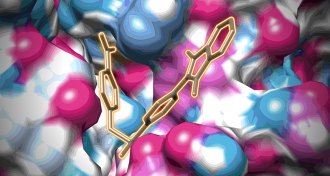 Health & Medicine
Health & MedicineA tiny crater on viruses behind the common cold may be their Achilles’ heel
Researchers have discovered a potential new drug target in a family of viruses responsible for the common cold and more serious infections.
-
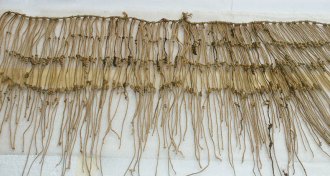 Archaeology
ArchaeologyThese knotted cords may hide the first evidence that the Incas collected taxes
Some knotted string devices point to crop levies imposed by the Incan empire, researchers say. But other khipus continue to evade description.
By Bruce Bower -
 Health & Medicine
Health & MedicineMedicaid-expanding states had fewer cardiovascular deaths than other states
Counties in states with expanded Medicaid eligibility had 4.3 fewer cardiovascular deaths per 100,000 residents, on average, than if they hadn’t expanded.
-
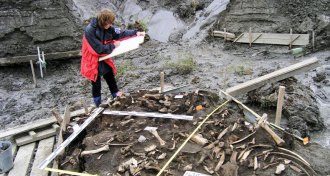 Genetics
GeneticsDNA reveals ancient Siberians who set the stage for the first Americans
A previously unknown population of Ice Age people who traveled across Beringia was discovered in Russia.
By Bruce Bower